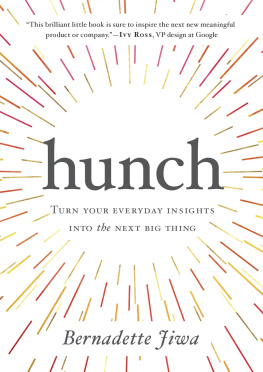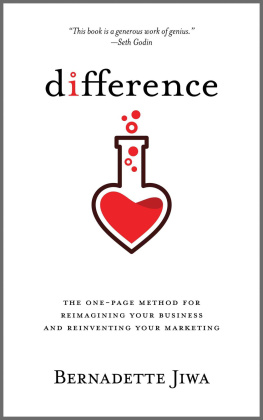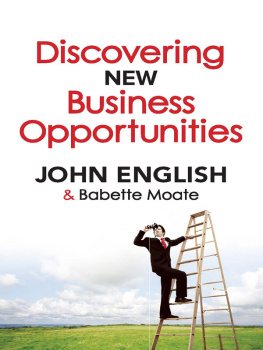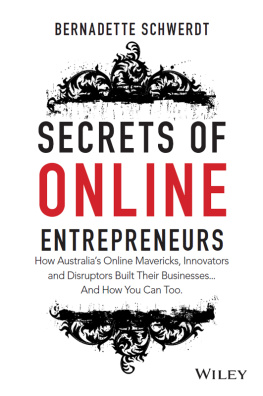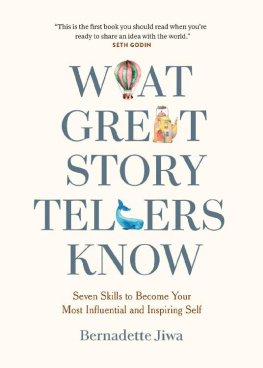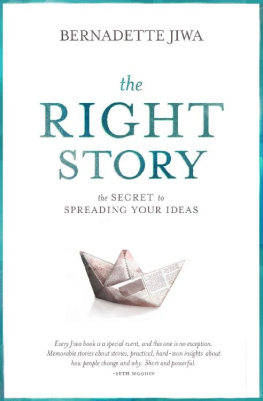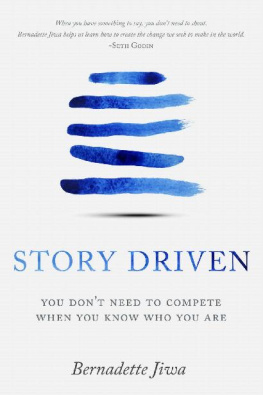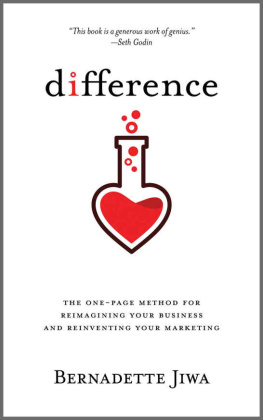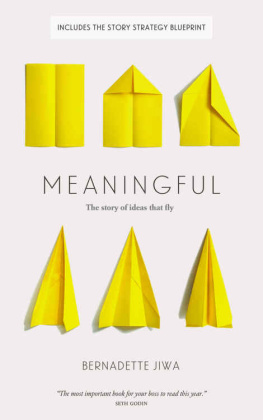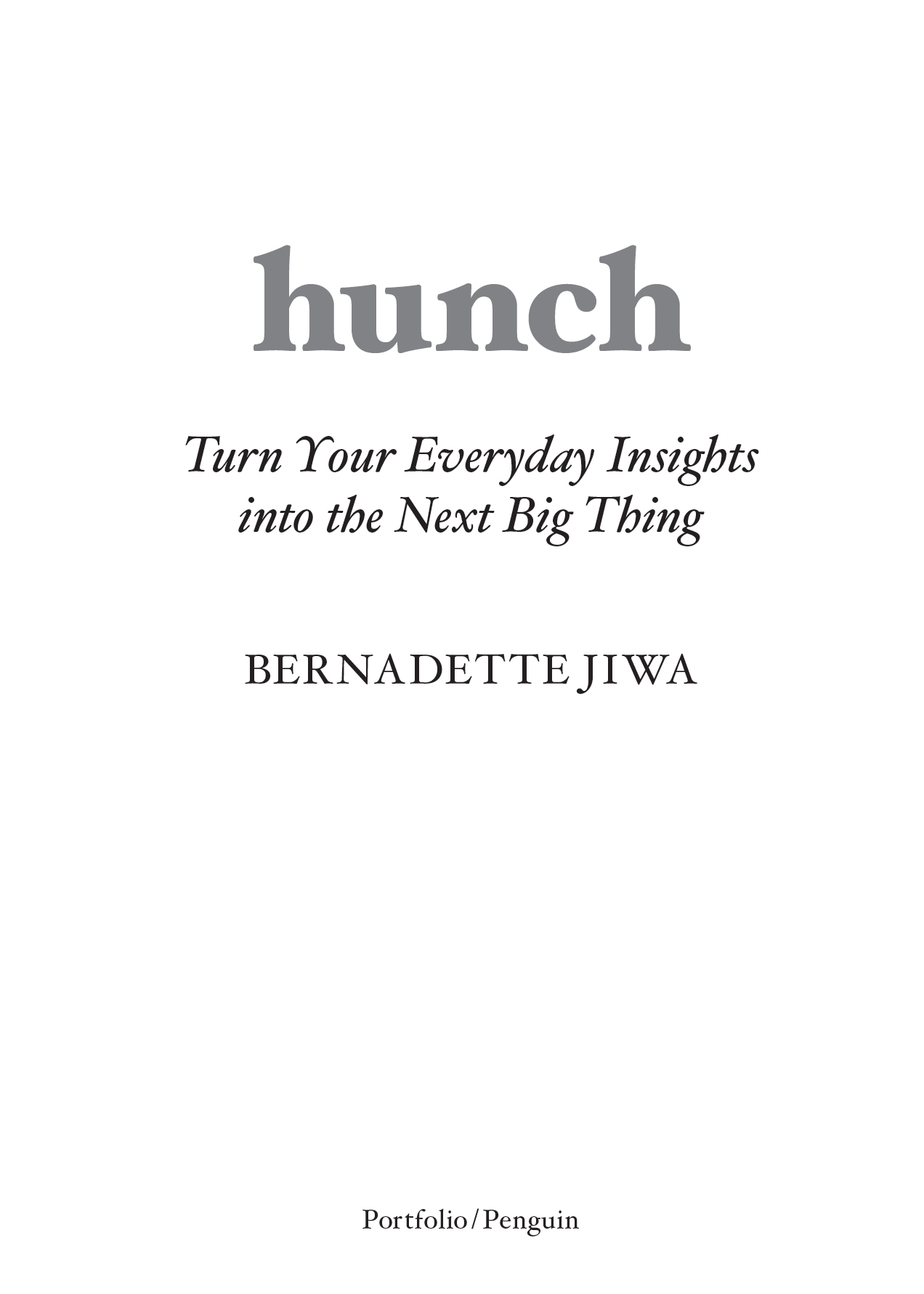Introduction
Anyone Could Have Done It

Intuition will tell the thinking mind where to look next.
Jonas Salk
L ike many boys his age, nine-year-old Richard Turere had chores to do at home. Unlike many boys his age, Richard made contributions to family life that had consequences which reached beyond those of stacking the dishwasher or picking up socks from his bedroom floor. As a Maasai boy, he was responsible for safeguarding his familys most valuable assettheir cows.
Richard was born in Kenyas capital, Nairobi, one of the fastest growing cities in the world. Over 3 million people share the metropolis with the wildlife of Nairobi National Park, which occupies 16 percent of it. The park is fenced to the north, but open and linked to a wider ecosystem to the south. Wild animals, including lions, roam freely and make seasonal migrations. This made Richards job even harder as, over time, many of his herd were lost to lion attacks. This uneasy coexistence between man and beast often resulted in lions being killed by warriors anxious to protect the community and its livestock.
The problem is prevalent throughout the continent, and its impact on the wider population of both lions and humans has been significant. In the 1960s, Africa was home to 200,000 lions. That number has dwindled to just 25,000 and is predicted to halve again within twenty years. Millions of dollars have been spent on lion conservation over the past few decades, but this hasnt halted the decline in their numbers. Lions are Kenyas number-one tourist attraction and tourism generates a substantial amount of the countrys revenue. But, inevitably, conflict with the indigenous population is threatening that resource. According to the Kenyan Wildlife Service, there were 2,749 lions in Kenya in 2002; within seven years that number had dropped by almost a third to just 2,000. Education and conservation programs have had little impact.
For two years, Richard had a tense relationship with the lions. They were his enemies. He continued to do his best to guard his familys herd, but losses to the lions that roamed the savannah at night were inevitable. It was not uncommon for Richard to find a dead cow in the shed when he woke in the morning. He had tried to solve the problem in a number of ways over those two years, using everything he could think of from fire to scarecrows, with little success. Then came a breakthrough. One night Richard stood guard, moving around the cowshed with a torch in hand. The lions stayed away. Putting two and two together, the young boy realized that the lions were afraid to approach the moving light because it indicated that people were up and about, keeping watch.
Richard had been curious about electronics and how things worked from a very young age; he spent hours in his room taking things apart (including, to his mums dismay, her new radio). His years of tinkering were about to pay off. Richard got an old car battery, a motorcycle indicator assembly, a bulb from a broken flashlight and a switch. He connected his makeshift blinking light system to the solar-powered electricity supply in the shed. In the dark, it created the illusion that someone was walking around the cowshed.
Richards Lion Lights solved the lion attack problem overnight. His familys herd have been safe ever since and hes gone on to install the system in neighboring farms. Lion Lights have been so effective that they are now used to scare away other predators across Kenya, saving cows, wildlife and money.
As a result of his invention, Richard was offered a scholarship to one of the most prestigious schools in Kenya and invited to tell his story on the main stage at TED in 2013:
One year ago I was just a boy in the savannah grassland herding my fathers cows, and I used to see planes flying over, and I told myself that one day, Ill be there inside. And here I am today, I got a chance to come by plane for my first time for TED . So my big dream is to become an aircraft engineer and pilot when I grow up. I used to hate lions, but now because my invention is saving my fathers cows and the lions, we are able to stay with the lions without any conflict.
Anyone could have done it, but it took a curious and determined eleven-year-old boy to begin to solve a problem that a whole community and countless officials had wrestled with for years.
When it comes to thinking and talking about winning ideas, culturally we have two distinct and opposing narratives: Anyone could have done it and, paradoxically, Only they could have done it. Good ideas are often either dismissed as obvious or, as author Charles Leadbeater says, destined only to be had by special people in special placesoften at elite institutions and start-up incubators facilitated by PhDs, whiteboards, angel investors, or a stash of colored Post-its. These opposing narratives that we cling to subconsciously influence our ability to be objective about the potential or impact our own ideas might have.
Think about how quick we are on the one hand to dismiss the simplicity of successful ideas as obvious, with the benefit of hindsight. The hashtag, car cup holders, screw-in soccer cleats, Post-its, granola bars and karaoke. Creative projects, inventions and innovations that required imagination and creative courage to bring them to life are somehow devalued by the phrase I could have done that myself, as if brilliance is reserved for something we dont believe we ourselves could do.

